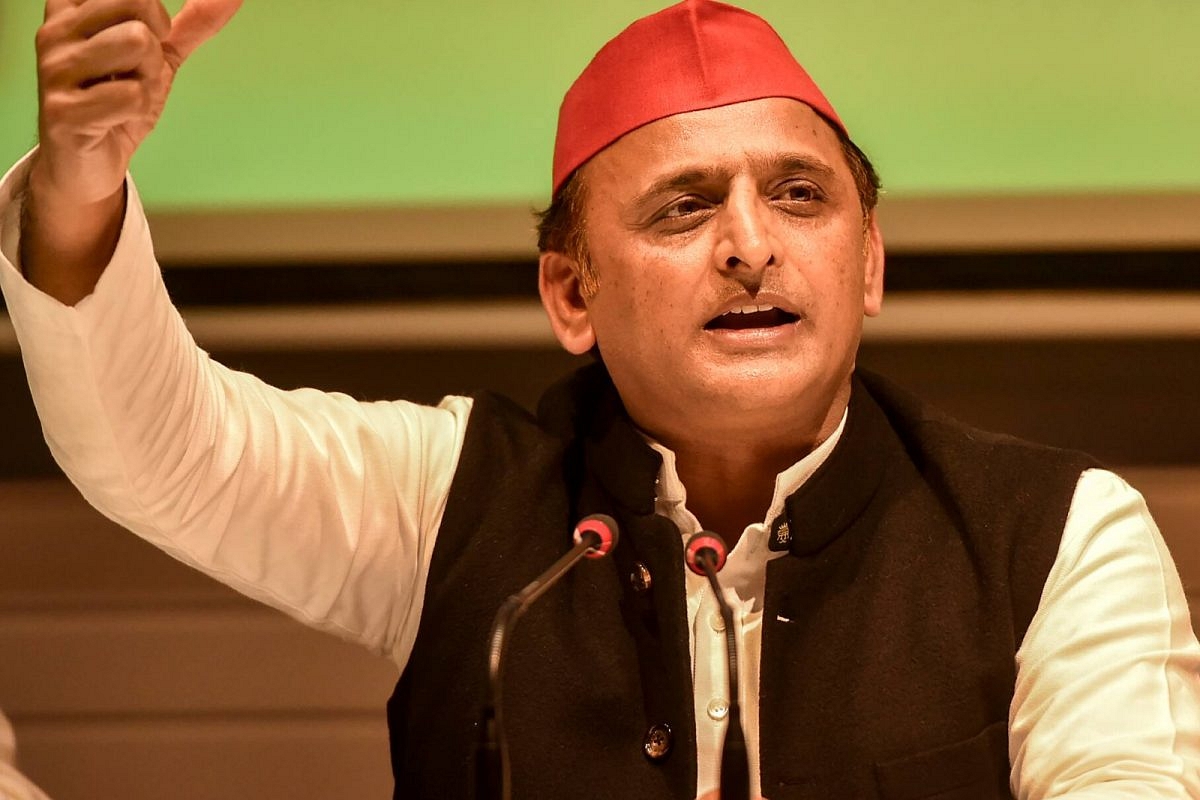Politics
INDI Alliance's Madhya Pradesh Quandary: Congress, SP Seat-Sharing Talks Hit A Roadblock

SP chief Akhilesh Yadav
The seat-sharing agrement between the Congress and the Samajwadi Party (SP) in Madhya Pradesh seems to have hit a roadblock.
The Congress, on Sunday, announced its candidates for four out of the seven constituencies where the SP, led by Akhilesh Yadav, had already declared their candidates.
Responding to the move by its INDI Alliance partner, the SP unveiled a list of nine additional candidates.
The constituencies in question include Chitrangi, Mehgaon, Bhander, and Rajnagar.
In the previous elections, Congress emerged victorious in Mehgaon, Bhander, and Rajnagar.
The SP's leadership, both in Bhopal and Lucknow, are reportedly unhappy with the Congress for nominating a candidate from Bijawar in the Chhatarpur district, a seat the SP had won in 2018.
Ramayan Singh Patel, the SP state president for Madhya Pradesh, has hinted that the chances of an alliance with the Congress are now slim.
"All possibilities of an alliance with the Congress are over," Patel was quoted as saying by The Indian Express.
“We had some talk with the Congress leadership, but it all fell through on Sunday. We will contest seats on our own and will do well in the elections next year,” he added.
A senior SP leader, who is considered close to Akhilesh Yadav, voiced concerns that the Congress might not be genuinely interested in defeating the BJP.
He stated that their interactions with the Congress suggested that the latter's primary goal might be to overpower the SP rather than the BJP.
"Our alliance with the Congress will be for the Lok Sabha polls but in MP we will go alone. There were talks with the Congress leadership and we wanted 10 seats. They were offering fewer seats and suddenly they announced so many candidates without keeping us in the loop. This is not how an alliance works," the party functionary said.
The SP has indicated plans to field between 30 to 35 candidates in Madhya Pradesh.
A significant point of contention between the two parties has been the Bijawar constituency.
The Congress's decision to nominate Charan Singh Yadav, a relative of senior SP leader Deep Narayan Yadav, has not been well-received by the SP.
“It is hurtful that they have announced a candidate in a seat we won in 2018 and were preparing to contest. They didn’t consult us or talk to us and fielded their candidate,” said the SP functionary.
The seat, which has a significant Yadav and Brahmin demographic, was won by the SP's Rajesh Kumar Shukla in 2018. However, Shukla later joined the BJP in 2020.
Piyush Babele, the spokesperson for the Madhya Pradesh Congress, stated that the final decision on seat-sharing rests with the party's top leadership.
Another Congress leader pointed out that the SP's expectations might be unrealistic given their limited presence in Madhya Pradesh.
“They don’t have a footing in MP. How are they expecting so many seats? And the seat they are upset about … Their MLA joined the BJP. Hopefully, something can be worked out but the SP needs to understand the ground realities in a state where they have no footing," the Congress leader was quoted as saying by IE.
The SP's recent announcement included candidates for nine constituencies, such as Sirmour, Niwari, Rajnagar, Bhander, and Sidhi.
Akhilesh Yadav had initiated the SP's campaign in Madhya Pradesh with a public gathering in Sirmour last month.
At an event in Lucknow on 1 October, the SP chief had expressed a desire for the SP and Congress to join forces to challenge the BJP.
In the neighboring state of Chhattisgarh, the SP is contemplating contesting in 40 out of the 90 constituencies. This move is seen as a strategy to strengthen their bargaining position in Uttar Pradesh for the Lok Sabha elections.
In a meeting held last month, the 14-member coordination committee of the INDI Alliance discussed the challenges of seat-sharing, especially in states like Punjab, Delhi, Uttar Pradesh, and West Bengal, where alliance members are in direct competition.
The consensus was that a one-size-fits-all approach would not be feasible, and the parties would need to rely on mutual understanding to finalise the seat-sharing arrangement.
Support Swarajya's 50 Ground Reports Project & Sponsor A Story
Every general election Swarajya does a 50 ground reports project.
Aimed only at serious readers and those who appreciate the nuances of political undercurrents, the project provides a sense of India's electoral landscape. As you know, these reports are produced after considerable investment of travel, time and effort on the ground.
This time too we've kicked off the project in style and have covered over 30 constituencies already. If you're someone who appreciates such work and have enjoyed our coverage please consider sponsoring a ground report for just Rs 2999 to Rs 19,999 - it goes a long way in helping us produce more quality reportage.
You can also back this project by becoming a subscriber for as little as Rs 999 - so do click on this links and choose a plan that suits you and back us.
Click below to contribute.
Latest